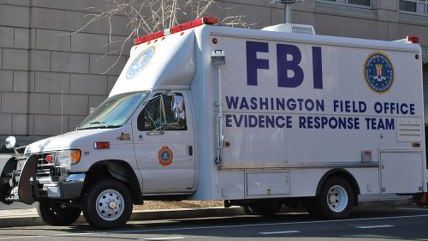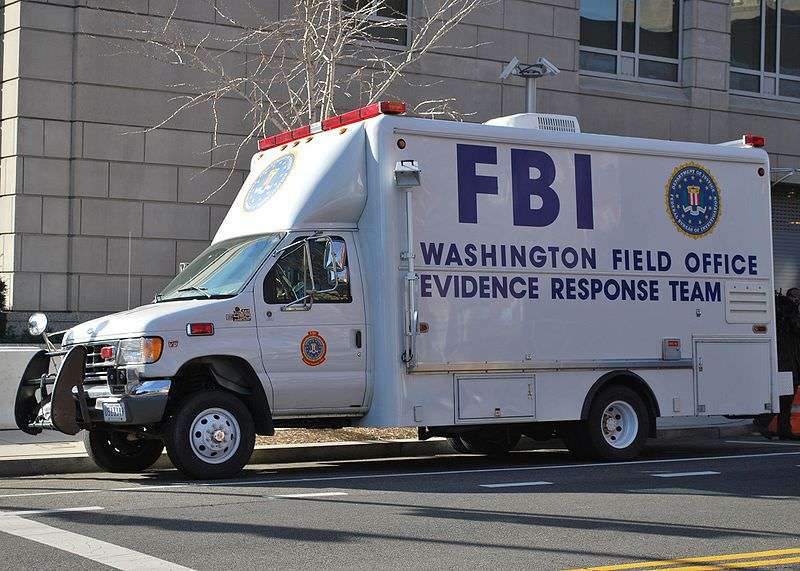Finally, Government Surveillance to Get Behind: FBI to Start Recording Interrogations


The FBI is quietly implementing a major change in policy that potentially has huge—and positive—ramifications for anybody suspected of a federal crime: The agency is going to start recording interrogations of suspects in custody in July. The change was quietly ordered earlier in the month. Previously the agency had a policy against recording interviews. The Arizona Republic obtained the memo:
"This policy establishes a presumption that the Federal Bureau of Investigation (FBI), the Drug Enforcement Administration (DEA) the Bureau of Alcohol, Tobacco, Firearms and Explosives (ATF) and the United States Marshals Service (USMS) will electronically record statements made by individuals in their custody," says the memo to all federal prosecutors and criminal chiefs from James M. Cole, deputy attorney general.
"This policy also encourages agents and prosecutors to consider electronic recording in investigative or other circumstances where the presumption does not apply,'' such as in the questioning of witnesses.
An accompanying message from Monty Wilkinson, director of the Executive Office for United States Attorneys, says the change resulted from lengthy collaborative efforts among DOJ and law enforcement personnel. Media representatives at the Justice Department and FBI did not immediately respond to requests for a more detailed explanation.
Why is this such a huge deal? Because making false statements to the FBI is a crime, and in the absence of a recording, even challenging what an FBI agent claims you said in an interview can get you into trouble. Harvey Silvergate, civil liberties lawyer and author of Three Felonies a Day: How the Feds Target the Innocent, explained, in the wake of the Boston Marathon bombing, how this dynamic resulted in charges against a friend of one of the bombers, a friend who played absolutely no role in the attack:
[Robel] Phillipos is a 19-year-old Cambridge resident, former UMass Dartmouth student, and friend of alleged Marathon bomber Dzhokhar Tsarnaev. He faces charges of making materially false statements during a series of interviews with FBI agents. If convicted, he could get up to eight years in federal prison and a $250,000 fine.
Phillipos underwent four FBI interviews. He is not alleged to have had any advance knowledge of, much less role in, the bombing itself. The FBI was apparently trying to obtain his information and cooperation concerning the role and knowledge of Dias Kadyrbayev and Azamat Tazhayakov, the two Kazakh students who allegedly found and disposed of Tsarnaev's backpack and laptop after he was named a suspect in the bombings.
The public and the media should withhold judgment not only as to what Phillipos did or did not do, but also as to what he did or did not say when questioned by FBI agents. Indeed, the public should look skeptically at the accuracy of any FBI claim regarding what transpires in the bureau's infamous witness interviews. Here's why.
FBI agents always interview in pairs. One agent asks the questions, while the other writes up what is called a "form 302 report" based on his notes. The 302 report, which the interviewee does not normally see, becomes the official record of the exchange; any interviewee who contests its accuracy risks prosecution for lying to a federal official, a felony. And here is the key problem that throws the accuracy of all such statements and reports into doubt: FBI agents almost never electronically record their interrogations; to do so would be against written policy. …
Frightened and confused interviewees, who, if they deny they said what any 302 report claims they uttered, can then be indicted for making false statements. The FBI is thus able to put words into a witness or suspect's mouth and coerce him to adopt the FBI's version as his own. The FBI thus establishes the official version of what a witness said, and the pressure on the witness to adhere to the 302 version is enormous. Any deviation, after all, raises the question: "Were you lying during your FBI interview, or are you lying now?"
The Arizona Republic talked to Steve Drizen, a professor of law at Northwestern University of Law who focuses on false confessions and convictions. He is understandably pleased at the policy change:
Drizen said the FBI has obtained a number of false convictions in homicide cases, particularly on Indian reservations, because suspect interviews were not recorded. Drizin also noted that, in some recent trials, jurors have acquitted defendants because they mistrusted FBI testimony about interrogations that could have been recorded.
Not unlike the trend of putting cameras on police, recording the interrogations could keep both sides honest. Not only are suspects protected from the FBI misrepresenting what they've said, the FBI agents are also protected from these same accusations—assuming the accusations aren't true, that is.


Show Comments (26)